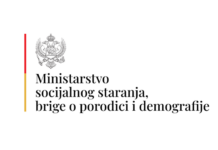Podgorica, (MINA-BUSINESS) – The Secretary General of the Association of Montenegrin Banks, Bratislav Pejakovic, has said that Montenegro should not be worried that the privileges related to the use of the euro as an official currency will be abolished during the negotiations for the EU accession, adding that the country would have an adequate response even in that case.
“You need to understand that we are a small country and the scope of money flow and turnover cannot possibly interfere with the policy of the European Central Bank (ECB). From previous experience, we don’t expect that our privilege to use the euro as an official tender will be abolished,” Pejakovic told Mina-business agency.
He believes that a potential modification of the euro convergence criteria could be expected during the EU accession negotiations, in terms of the conditions that are specific in the case of Montenegro.
“Our negotiators will present the state of affairs during the negotiations and, if there is room for modification of the euro convergence criteria, they will be implemented,” said Pejakovic.
He said that the specific feature of negotiations under chapter 17 – Economic and monetary union, reflected in the fact that Montenegro had been using the euro as an official currency since 2002, was nothing new in the global economy.
Pejakovic believes that this would be the best solution for the economic development and predictability of climate for foreign investments.
“The European rules allowing a country to use the euro as a currency are well-known. It needs to be an EU Members State, and observe the key criteria from the Maastricht Treaty, including the budget deficit below three percent of the gross domestic product and the public debt below 60 percent,” said Pejakovic.
He added that, with the major infrastructure projects under way, it was important to expects an increase in debt, which had been experienced by some EU Member States as well.
According to Pejakovic, Montenegro can respond to all challenges related to the EU accession requirements, adding that they are not more stringent than the ones currently applying to the banking sector.
He believes that joining the large European market has its advantages and downsides, adding that Montenegro should benefit from the former.
“Digitalization at all levels, FinTech, innovations and e-commerce are something the EU has been working on the most, meaning that its experiences, legislation and good practice should produce positive effects at the local level as well,” said Pejakovic.
He expects that more favourable taxation conditions in Montenegro, as compared with the EU, will attract new companies that will recognize a favourable business climate, which will in turn result in a growth of local banks.
This article was published with the financial support of the European Union available within the framework of the project “Dealing with Ethics and Fake News” IPA2018/397-252. MINA agency assumes full responsibility for its contents, which do not necessarily reflect the position of the EU.
Longer version of article is available on a link MINA ENGLISH SERVIS
























